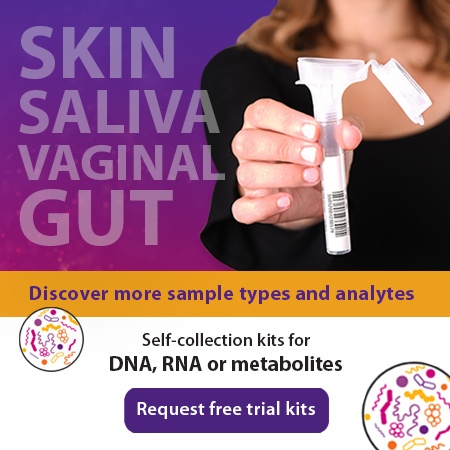2019-09-09
I recently had the opportunity to interview Jean Macklaim, a Bioinformatician at DNA Genotek who has an extensive history with RNA research for our podcast, Molecules, Microbes and Multiomics. Jean received her PhD in Biochemistry and Bachelor of Science in Human Genetics from the University of Western Ontario where she focused on sequencing technologies and bioinformatics methods to understand the structure and function of the microbiome in different disease and environmental conditions. In this podcast, Jean speaks about the challenges and potential RNA has in both the research and clinical fields for human microbiome.
The full podcast is available here and selected highlights are below:
Why are researchers in various fields starting to look at RNA?
“For a long time, RNA has been a molecule of interest that has only been accessible through targeted approaches like microarrays or targeted qPCRs. It’s very widespread as a molecule of interest in human ‘omics’ with researchers looking at gene expression, non-coding RNA, transcriptional regulation. Being able to do that now with sequencing has been a benefit as you no longer require a targeted component as you can perform an untargeted approach to understand things you don’t know you are looking for yet.”
What is the benefit of collecting and stabilizing RNA for human microbiome studies?
“RNA degrades and changes very rapidly so when we are talking about a microbiome and its bacteria, it’s a matter of minutes. In microbiome studies, there’s a balancing act of being able to collect the analyte at the right time, in the right way, in sufficient quantity and quality to make it usable for your study. The benefit, in comparison to DNA, is that rather than getting an idea of what the organisms could do in that environment, you’re really pulling out that snapshot of what they are doing in that moment, at that time, in response to everything around it.”
How can you use RNA information to benefit other research areas such as metabolomics?
“The field is moving towards a systems biology perspective right now and that’s the idea that you need all these different components and views to really understand a biological system. RNA is just one component of that and you can add in DNA, metabolites, proteins, host immunity, or environmental causes. This gene expression information is a really critical next step in the microbiome field where we’ve focused a lot on DNA and taxonomic predictions. What we want to understand is what the organisms are doing. That expression information could be tied directly to metabolic products.”
What potential applications or biological problems can RNA contribute to?
“The number of applications are immense.”
You’ll have to listen to the podcast to hear which applications Jean highlights, see the embedded podcast above.
For more information on RNA or DNA as a sample type for microbiome studies, please email us at info@dnagenotek.com.


